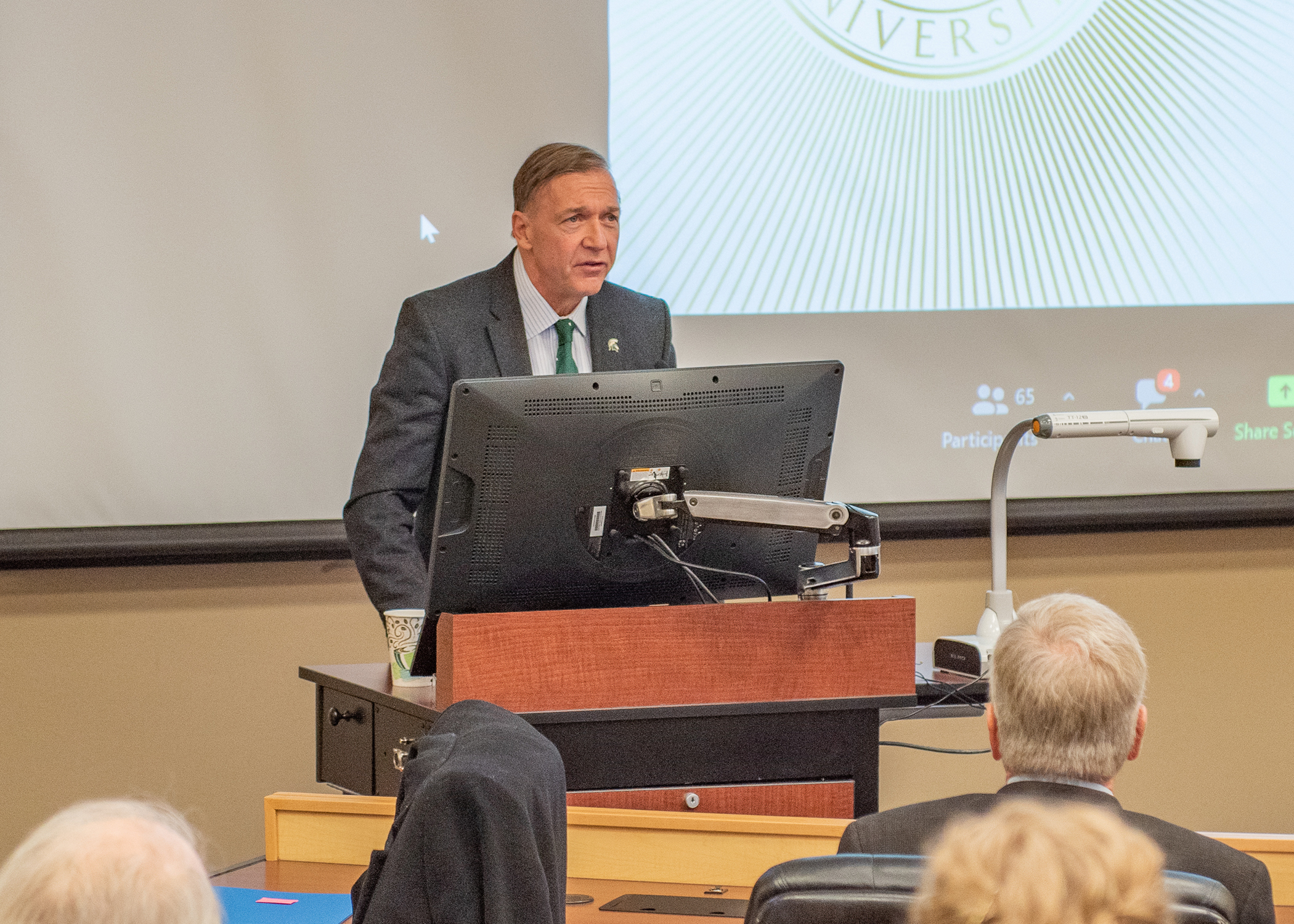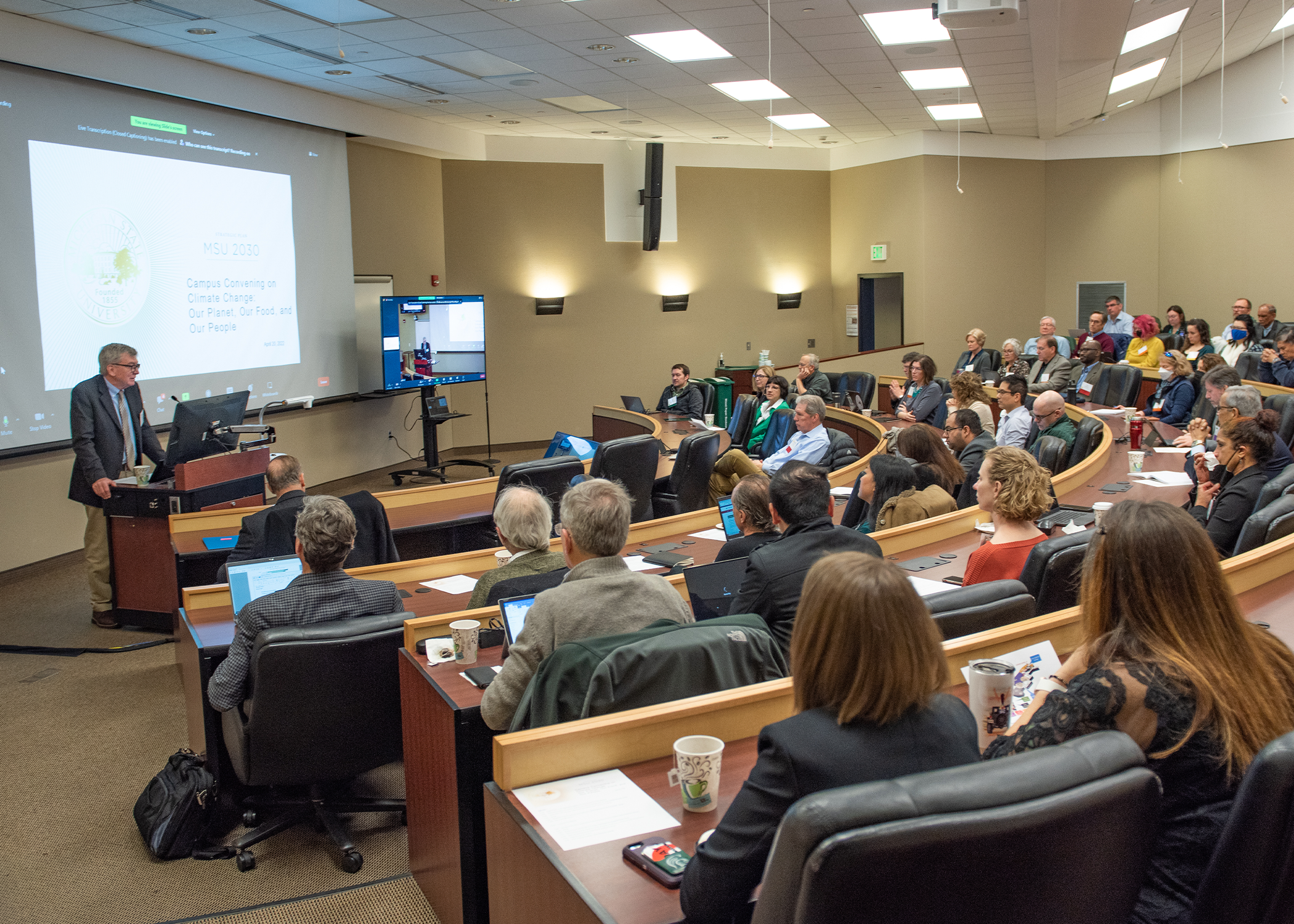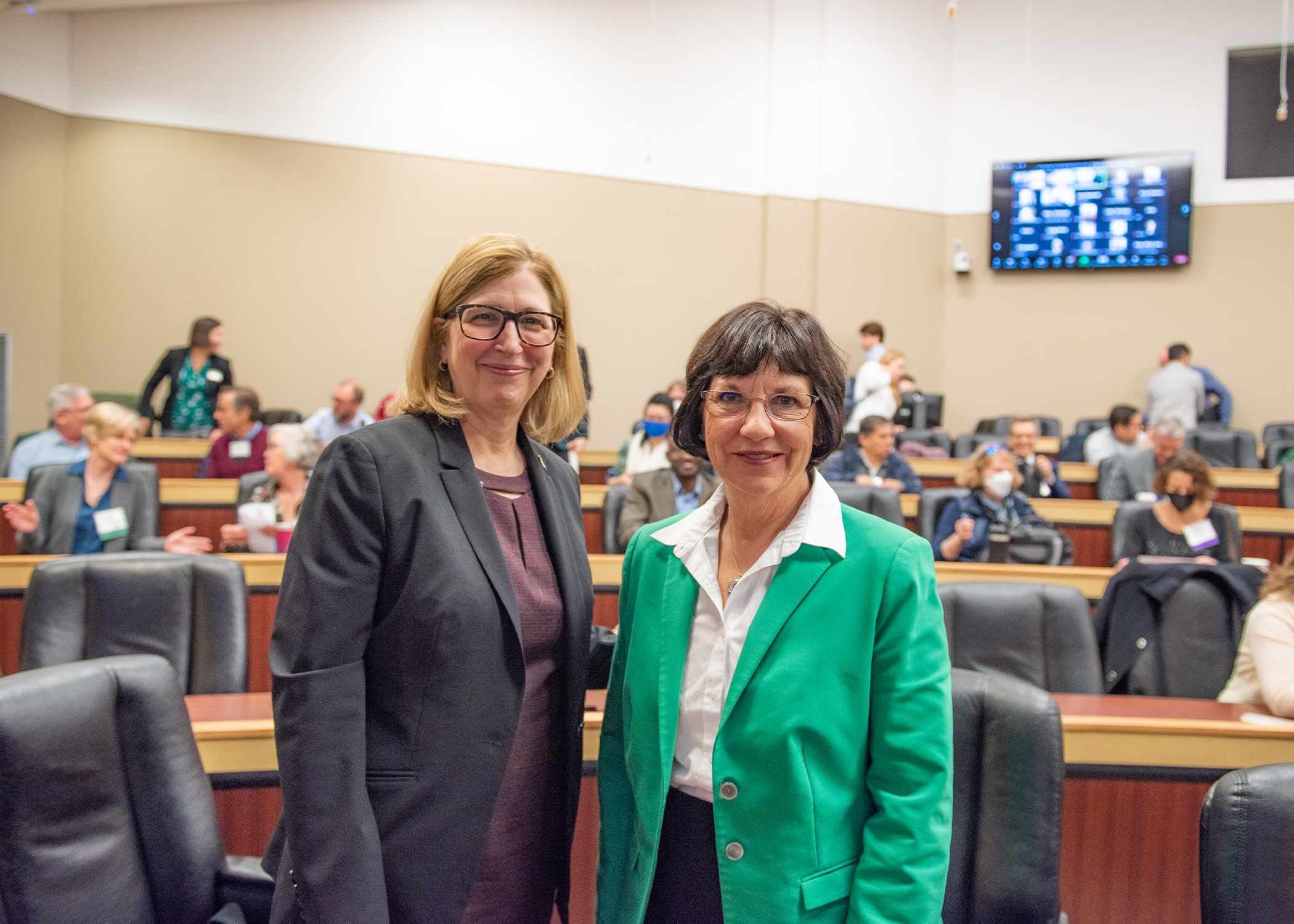
Campus Convening on Climate Change Opens Doors for New Ideas, Collaboration and Impact
In one of the first major implementation events of the MSU Strategic Plan 2030, more than 160 faculty, staff and students came together on April 20 for the Campus Convening on Climate Change: Our Planet, Our Food, Our People, to share ideas for the development of a comprehensive research agenda around climate change mitigation and adaptation.
Organized by the Office of Research and Innovation, the convening was an opportunity for the research community to engage and make new connections around a common theme.

Registration for the event reached full capacity early, with participation from every college and many units across campus. Disciplines including agriculture, economics, social science, communications, humanities, and more were represented as well as Infrastructure, Planning and Facilities, and campus operations.
Opening remarks from MSU’s President, Samuel L. Stanley, Jr., M.D., Provost Teresa K. Woodruff, Ph.D., Vice President for Research and Innovation, Douglas Gage, Ph.D., and Chair of the MSU Board of Trustees, Diane Byrum, provided context for climate change as an initiative of the strategic plan, its relevance, and the urgency to act.
“As I look around the room today, I’m reminded of the extraordinary capabilities we have at MSU,” stated President Stanley. “Considering the complex and dynamic challenge, the impact to be made, and the vision of the university we represent - if not us, who?”
Along with university leadership kicking off the event, many deans, associate research deans, and department chairs were also in attendance showing their support and participating in breakout groups.

“The turnout and support for this event has been very positive and demonstrates how critical the topic is and how many Spartans want to be involved in working toward solutions,” stated Doug Gage. “I have every confidence this kick off event will spur new ideas for research and engagement that can truly make a difference.”
After receiving their instructions for the day, participants were released to their breakout rooms where they were purposefully mixed with attendees from other disciplines to encourage thought-provoking discussion. Facilitators from the Toolbox Dialog Initiative (TDI) and MSU Extension provided guidance to both in-person and virtual participants.

Groups conducted brainstorming in the morning session to identify the major issues facing Michigan, the US, and the world as it relates to climate change and our planet, food, and people. As follow up to that exercise, the eight teams were then asked to narrow down their lists and focus on the issues MSU is most uniquely positioned to address.
In the afternoon session, teams were asked what success would look like, then determined the resources it would take to execute their suggested projects.
The final segment of the day included reports from each of the groups followed by a robust question and answer session.
A major theme from many groups was the importance of “people first” and to encourage any climate change activities to engage the people who are impacted at the local level. People were also emphasized from the standpoint of support for faculty to do this work, robust climate curriculum for students, and developing graduates who are ambassadors for sustainability.
It was also noted in the breakout reports that solutions to climate change are beyond technical and will be dependent on implementation. Engagement with communities will take important education, communication, and persuasion to help people understand the challenges we face and how they can take meaningful action. The importance of communication was mentioned by nearly every group with the arts and humanities playing a crucial role.

Vice President Gage ended the last session with the announcement of support services for project groups that form, including a seed funding program. Details of the seed funding and team support services will be announced in the coming weeks.
Provost Woodruff wrapped up the day’s activities by emphasizing her morning framework remarks and charge for the day.
“Presence matters and you showed up today to be part of the solution – and I know you will continue to participate in this work going forward, and welcome others to join us,” said Woodruff. “As an R1 university we certainly have the capacity to take on this gnarly problem, and our land-grant mission and values position us to truly impact the communities we serve. We have the capacity to act, and we will.”
Next steps for the climate initiative include:
- Organizing the final reports and breakout group notes and sharing with those with the attendees and the broader MSU community. Opening and closing remarks, and reports from breakout groups are available on Kaltura Media Space.
- A survey to the MSU community to gather additional input.
- The development of a white paper to outline key themes and activities for moving forward.
- Smaller events to focus on specific themes with opportunities for funding. The first event related to mitigation innovations in energy and materials was held May 25, with more topic driven sessions being scheduled for this fall.
A web page has been developed to house information about the climate initiative and future events.
- MSU Police and Public Safety
- Olin Health Center
- Counseling and Psychiatric Services (CAPS)
- University Health and Wellbeing
- MSU Health Care Inc.
- Civil Rights and Title IX
- Our Commitment
- Center for Survivors
- MSU Misconduct Hotline
- Security & Fire Safety Report
- Notice of Nondiscrimination, Anti-Harassment and Non-Retaliation
- Health Care Notice of Nondiscrimination